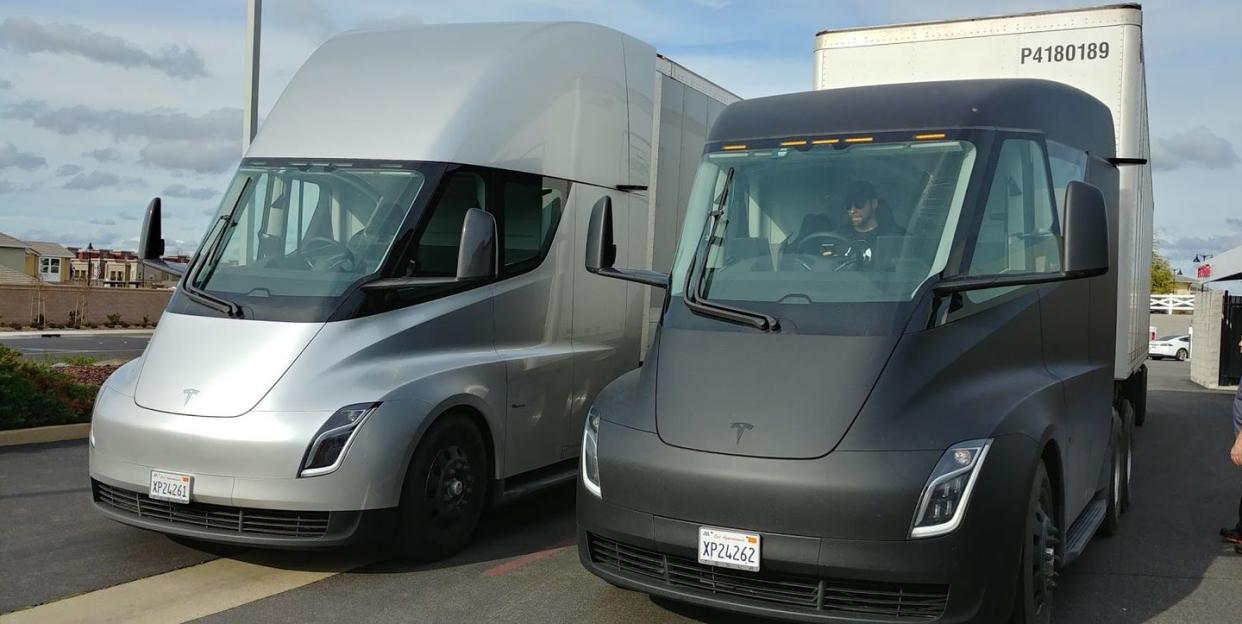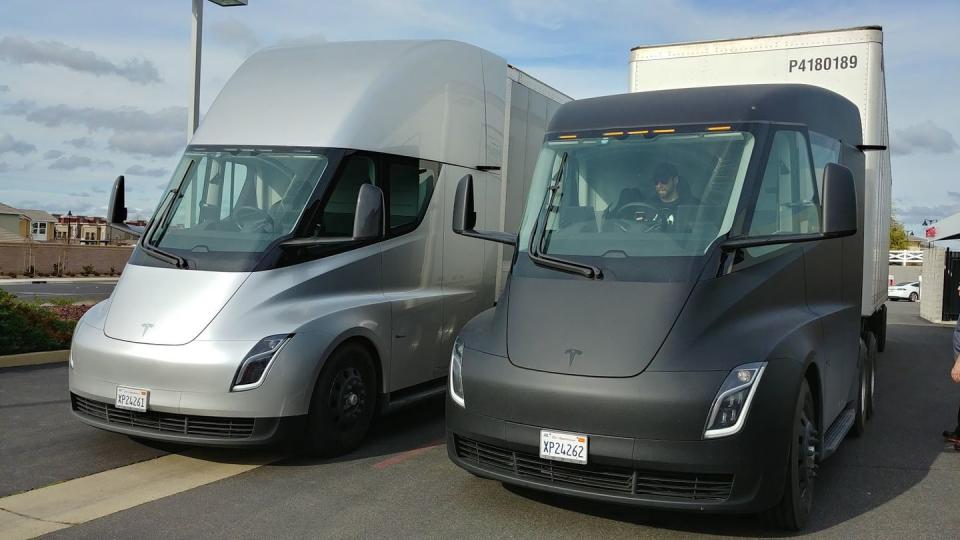California Sets Bold Goal: 100,000 Electric Trucks Within 10 Years

Could we have 100,000 electric trucks on the road in California by 2020?
Existing electric trucks are mostly concepts or pilots for larger programs.
Californians in polluted, truck-heavy areas welcome the proposed numbers.
The California Air Resources Board (CARB) has put a new requirement on the books for manufacturers to make more electric trucks for use on California roads. The goal is to have 100,000 electric trucks by 2030 and replace the entire fleet with electrics by about 2045. CARB says there could be 4,000 electric trucks on the road in just a few years.
Trucking is a massive industry that helps to keep vital goods circulating around the country every day, but there are growing pains as technologies like driver tracking software, autonomous vehicles, and now electric and hybrid trucks enter the increasingly crowded marketplace. Even so, electric truck startups have rushed to fill a desire in the market, especially in city contexts where electric fleets could serve utilities and others who make short daily circuits.
Electric trucks serve an emissions goal only, at least for now—in the long term, the industry seems to want fully autonomous trucks at least as an option. CARB’s decision has supporters all around the state of California, where pollution—especially fog—is a huge problem. It’s not always easy to see in the midst of a respiratory virus pandemic, but air quality is a decades-old problem that affects millions of people, especially children.
Right now, road legal electric trucks are more like cargo golf carts. Tesla has one of the closest to a true electric semitruck tractor, and various startups are trying to either retrofit existing chassis designs or build new chassis for an electric powertrain. Tesla’s website offers two tiers of the Semi model, 300 or 500 mile range. That selection highlights one of the factors holding back electric trucks, where drivers can work 11 hours out of each 24 and must make the most of it. Even 500 miles just isn’t very much for a long haul trucker.

An industry official told CapRadio he believes the numbers CARB wants just aren't realistic, based on factors like the rate at which consumers have adopted electric vehicles—way below the rate they’ll need to meet another CARB goal of 5 million electric consumer vehicles by 2030. This is partly because of enduring anxiety about range and charging, but these notions are mostly out of date in 2020.
Ramping up to make CARB’s planned number of electric trucks will require a huge shift in automotive manufacturing as well as a huge number of batteries. Tesla has already had to slow the rollout of some of its vehicles in order to keep supplying those batteries to other projects, and right now, researchers are desperate to find either a true alternative to lithium ion batteries or a new, more efficient way to construct them.
Range anxiety may be a thing of the past for most consumer electric vehicles, but for truckers, 500 miles just isn't enough to make a dent in the longest hauls. That said, by the time CARB’s electric truck dreams start to come true in 2030, we could have a new electric battery that can squeeze out that extra juice.
You Might Also Like

